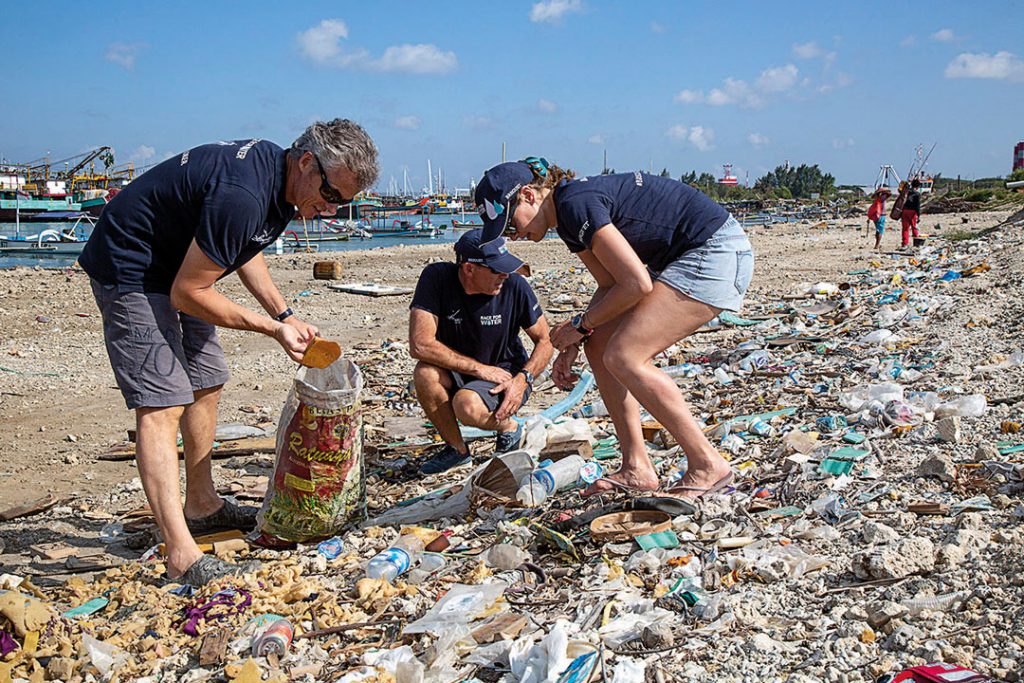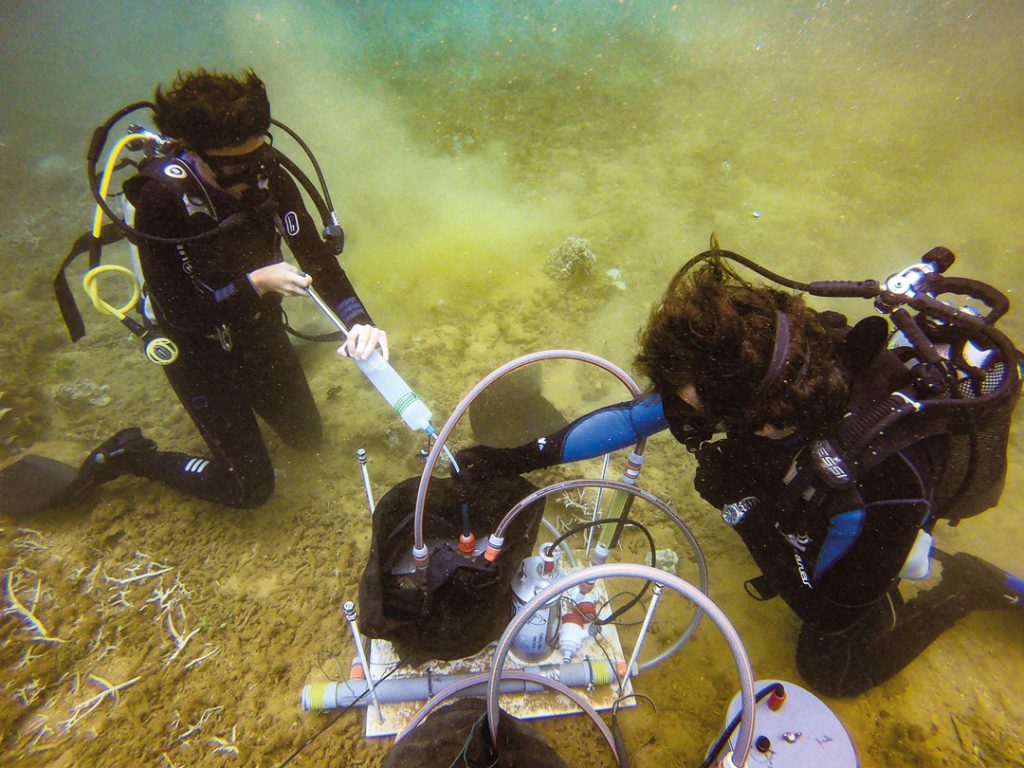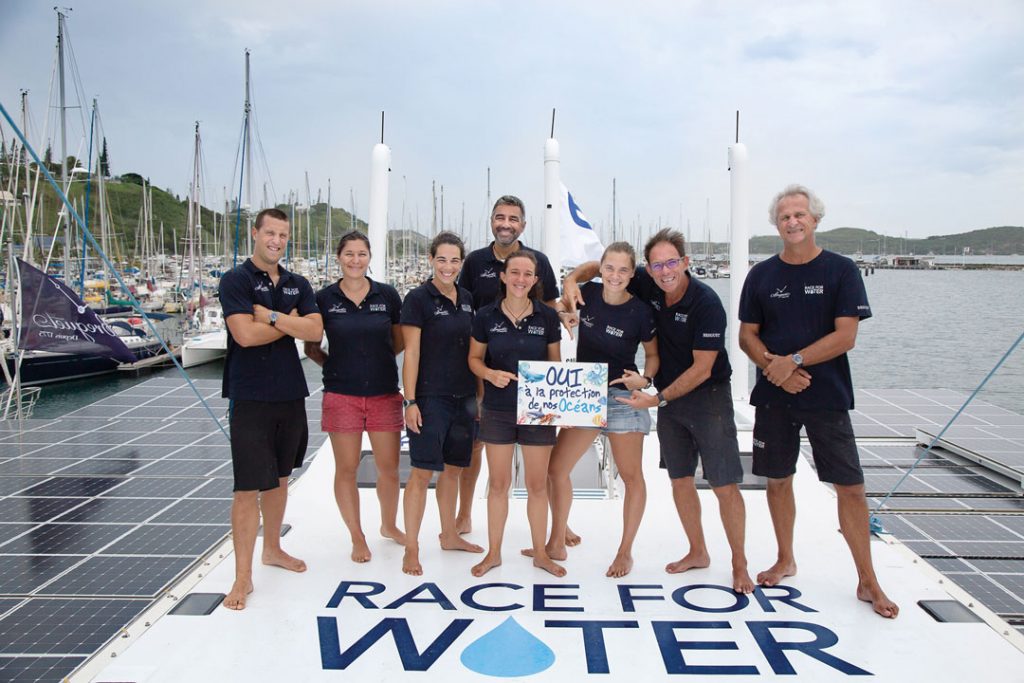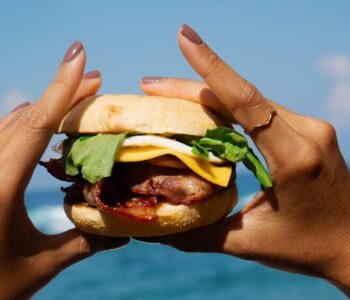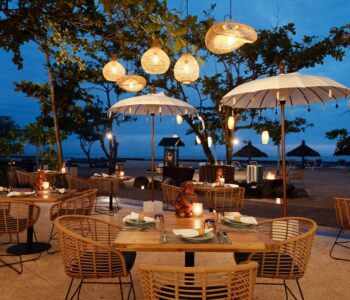Almost a decade ago, Swiss entrepreneur Marco Simeoni created the Race for Water Foundation dedicated to the preservation of water and in specific our oceans.
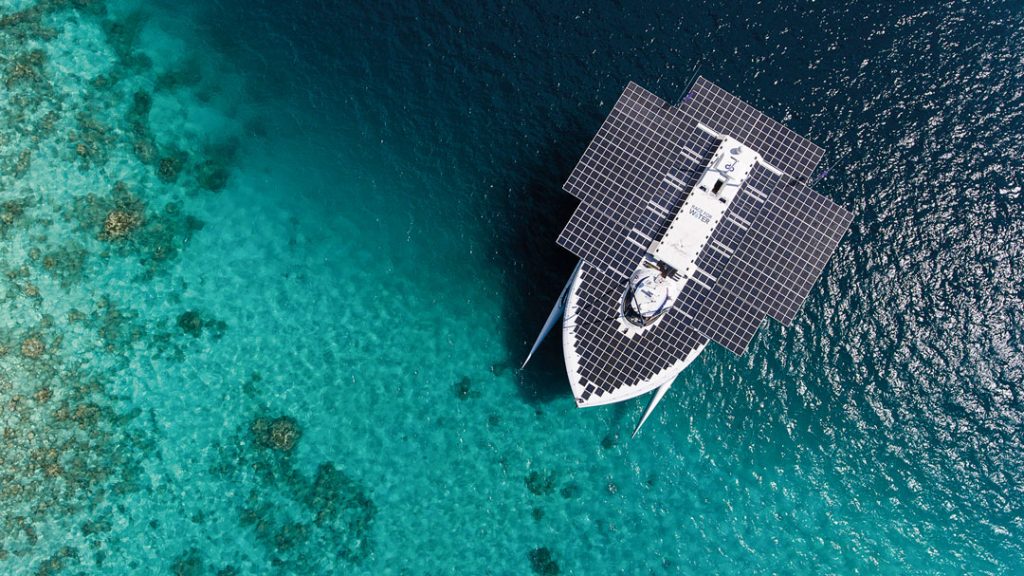
On his journey, he has encountered the increasing magnitude of the plastic pollution catastrophe on ecosystems while offering pragmatic and useful alternatives to avoid the entry of plastic waste into waterways.
It is not news that humanity is nourished by the oceans, 50% of the oxygen we breathe is produced by the oceans! If we do nothing, there will be more plastic than fish in the oceans by 2050. And not only humans are being affected due to our inconsiderate actions; over 1.5 million animals die each year from marine plastic pollution.
In 2015, Race for Water launched its first ‘Odyssey’ to conduct a worldwide marine plastic pollution evaluation. The results were evident: there are no plastic islands. Only 1-3% of plastics remain intact on the surface of the ocean. We are facing a true conglomerate of toxic microplastics with catastrophic effects on marine fauna and the food chain. Collecting plastic waste at sea has proved to be just a pipe dream. Urgent actions are needed to stop the flow of plastic waste reaching our oceans.
Currently the Race for Water Odyssey is in on an expedition that will last until 2021, including 35 stopovers to raise awareness, identify, promote and deploy local solutions for transforming plastic waste into energy.
Due to its mixed solar-hydrogen-kite propulsion system, the Race for Water ambassador vessel is also a showcase for energy transition. Resulting in zero CO2 emissions. It is a testament to the impressive solutions that exist today. The vessel is powered through the combination of: 512m2 of solar panels and energy storage in the 7.5 tons of Lithium-ion batteries, 7.5m3 of hydrogen at 350 bars stored in 25 bottles, 40m2 self-piloted kite-wing deployed at 150 m altitude.
Through the journey, and the many stops they take, the goal is to ‘Learn, Share, Act’. Their objectives include: contribute to advancing scientific understanding on plastic pollution in the water, alert decision-makers to increase government consciousness, educate younger generations and finally promote and implement viable financial, environmental and social alternatives.
They encourage evaluation of present plastic production techniques in place and urge everyone to decrease plastic consumption and recycle plastic waste. The present recycling model’s fragility is hampering its growth. For recycling, only 15 to 20% of plastic waste is presently gathered. For reasons of health, safety, quality and contamination, more than half of these collected materials cannot be reused. Moreover, recycling’s prohibitive price favours the use of virgin plastic.
In anticipation of a sustainable and environmentally friendly circular plastic economy, Race for Water provides a realistic alternative that can put an end to most ocean contamination from plastic waste, deployed on a big scale. Delivering technology for elevated temperature pyrolysis designed to convert all plastic waste into electricity. These container-installed units can be installed near populated regions and enable isolated communities, such as islands, to separately handle their waste management and energy production. The revenue produced by selling electricity offers a source of remuneration for paying road collectors and reducing the cost of disposal of waste. The value produced benefits local communities directly, whether at a financial, social or environmental level.
Everybody’s commitment is key to winning this fight against plastic pollutions in our oceans, this is why the Race for Water reminds us that the best waste is the one that is not produced. Every drop counts.
Follow the journey at www.raceforwater.org

